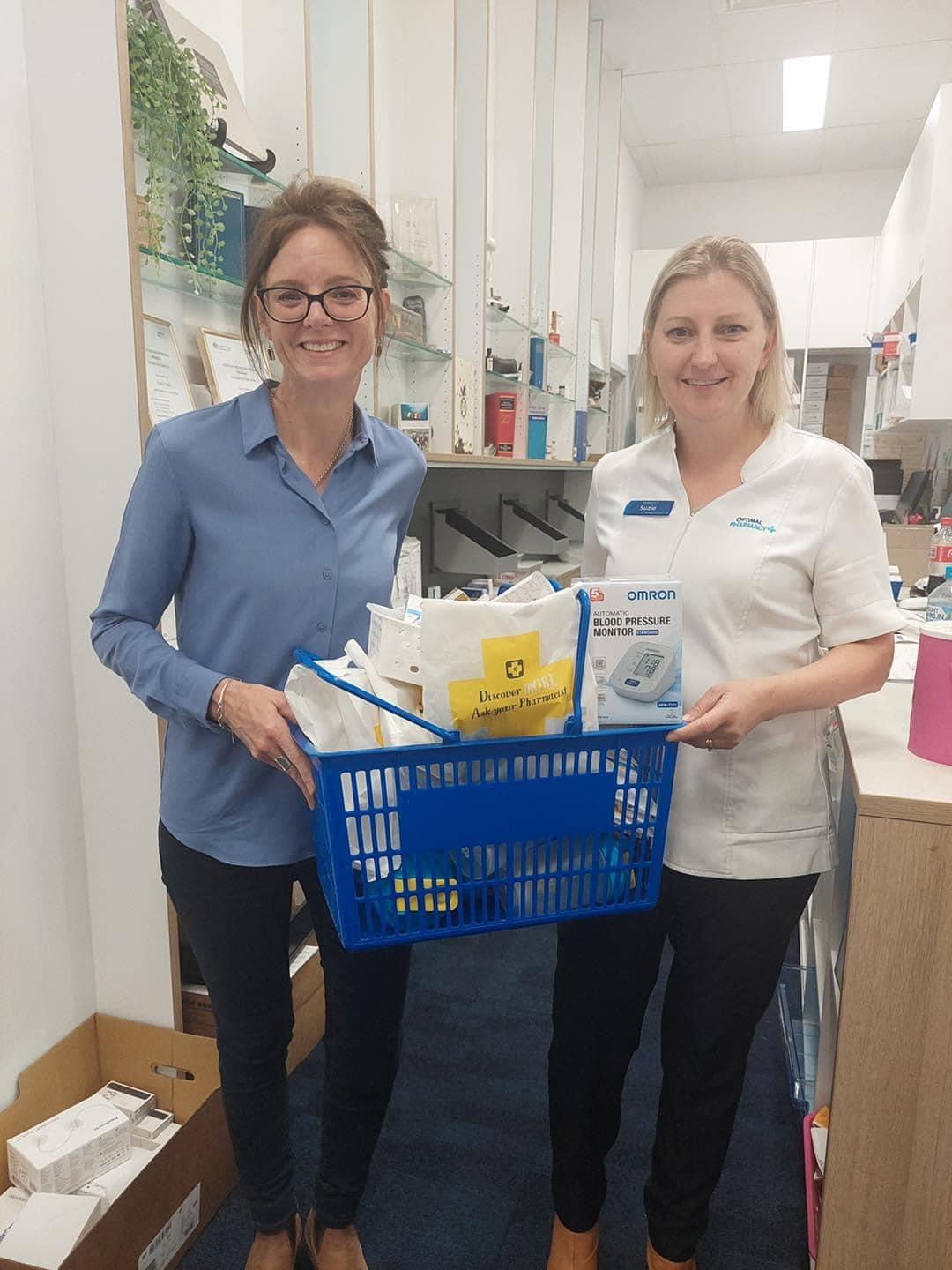
The PSA has provided a blueprint to help Federal Treasurer Jim Chalmers improve primary care and enhance medicine safety for all Australians.
The five-step plan calls for pharmacists to be able to practise to full scope to support a healthcare system under immense pressure and encumbered by red tape.
Here’s a look at PSA’s key 2023–24 Budget proposals that would directly improve patient access to primary care, particularly in rural and regional Australia.
1. Allow all pharmacists to deliver all vaccinations in all locations
Pharmacists are the preferred vaccinator for many patients due to their accessibility and flexibility, with over 10 million COVID-19 vaccines administered by pharmacists over the last 2 years.
Pharmacist immuniser and owner of My Community Pharmacy Shortland in Newcastle, John Jones MPS, said it’s not always easy for patients to access vaccines through their GP, and that pharmacists are in a prime position to fill the void.
‘We’ve done the training, we are accredited to administer vaccines and deliver them in a safe way – so why not try to fill that space,’ Mr Jones said.

While most jurisdictions are gradually increasing the range of available pharmacist-administered vaccines, this is taking place in an ad hoc manner.
The PSA is advocating for nationally-consistent standards across jurisdictions, ensuring all vaccines can be administered by all pharmacists to patients of all ages.
The PSA also urges the government to ensure that pharmacists are not hit with out-of-pocket expenses to administer vaccinations, ensuring there is sufficient resourcing and access through community pharmacies and other settings while not limiting existing pharmacist services.
2. Strengthen primary care capacity to administer prescribed injectable medicines
Almost half (47%) of Australians experience chronic disease, including heart failure, hypertension, diabetes, and asthma.
Administration of injectable short- or long-term medicines such as intramuscular depot buprenorphine, subcutaneous omalizumab, subcutaneous insulin, and intramuscular Vitamin B12 can be lifesaving for patients.
However, many don’t feel comfortable with self-administration, and seek at-home nursing services or GP appointments to have the medicines administered.
To reduce the burden on the health system and strengthen medicine adherence, PSA recommends upskilling the pharmacist workforce through funding for training to administer prescribed injectable medicines.
Some medicines, including long-acting buprenorphine for opioid dependence, also require state legislative instruments to allow for pharmacist administration.
The PSA said that cutting this unnecessary red tape will ensure patients have access to injectable medicines when they need them, improve equitability of GP appointments and at-home nursing services, and reduce healthcare burdens related to avoidable hospital presentations, medicine misadventure, and poor health management.
‘What is slowing us down is the legislation,’ said PSA General Manager Policy and Program Delivery Chris Campbell.
‘A person can pick up their injection from the local community pharmacist, for example for B12, but in some cases they can’t also receive it,’ agreed PSA National Vice President Dr Shane Jackson.
‘We would appeal to all governments to take away the handcuffs on pharmacists being able to do something which is well within their scope.’
3. Expand non-dispensing pharmacist roles in general practice
With the GP shortage crisis continuing to unfold across regional and remote Australia, many patients who live in these communities have been forced to seek care from Emergency Departments (EDs).
Ontario Medical Clinic in Mildura, for example, lost three full-time GPs in 6 months, meaning each doctor needs to see over 50 patients per day. This equates to 625 appointments per week, resulting in up to a 4–5 week wait time for patients.
‘These patients are instead going to delay care, present to our already bursting EDs or worse, go without any care at all,’ said Brooke Shelly MPS, a GP pharmacist at Ontario Medical Clinic.
To improve patient access to primary care, PSA recommends the government:
- provide $3 million funding over 4 years for a GP-Pharmacist Collaborative Prescribing Pilot
- increase the Workforce Incentive Program (WIP) funding to provide medical practices with further financial incentives to engage pharmacists in non-dispensing roles
- introduce Medicare Benefits Schedule (MBS) item numbers to allow GP pharmacists to claim for consultations.
With half of GP appointments dedicated to the management of chronic or existing health conditions, PSA suggests that allowing GP pharmacists to prescribe under a collaborative care model would improve patient access to timely, high quality and comprehensive care.
‘There is no doubt GP pharmacists have the skills to prescribe safely. That’s all patients want,’ added Ms Shelly.
The PSA calls for GP pharmacists to be included in remuneration schemes such as the WIP and allowing GP pharmacists to claim against MBS item numbers, ensuring practices can sustainably provide these services, expand the number of GP pharmacist roles available, and allow GPs to better utilise their time.
4. Expand continued dispensing arrangements
Despite successfully expanding continued dispensing arrangements in response to the 2019–20 bushfires and throughout the COVID-19 pandemic, the government reversed these changes on 1 July 2022, reducing the number of medicines from over 900 to 168.
Classes of medicines not eligible under the permanent Continued Dispensing arrangements include antiepileptics, antidepressants, antipsychotics, antithrombotics, antirheumatics, medicines for Parkinson’s disease and glaucoma, chronic antibiotic use in conditions such as cystic fibrosis and immunosuppressants.

The PSA urges the Federal Government to rethink these changes, saying that if patients can’t access these medicines in an emergency, discontinuation of therapy could lead to serious medicine safety implications.
‘So many [patients] have told me they stopped taking their medicines because it was all too hard to organise,’ said Susan Nash MPS, pharmacy manager Optimal Pharmacy Plus Cowra, which was affected by floods late last year.
‘There would be less ringing around to busy doctors if we had access to a wider range of medicines through Continued Dispensing.’
The PSA therefore recommends all PBS General Schedule medicines be eligible for Continued Dispensing permanently to support timely and equitable access to medicines in the event of an emergency.
5. Allow community pharmacists to provide more treatments for more minor ailments
In 2018–19, 11% of ED presentations were considered non-urgent. When patients seek hospital care for non-urgent conditions such as headaches, coughs and colds, and earaches, it puts unnecessary pressure on the healthcare system.
The PSA said utilising the GP and community pharmacy workforce in nationally-consistent programs to triage, manage and refer non-urgent care presentations would relieve this pressure, allowing EDs to respond to more urgent conditions.
‘The minor ailment service is aimed at integrating community pharmacy further into the national healthcare system consistently across Australia, making the most of pharmacists’ clinical skills to support the needs of our communities,’ said PSA NSW Branch Vice-President Dr Sarah Dineen–Griffin MPS.
Minor ailments that could be covered under this program include:
- minor skin conditions, wounds, bites, or lacerations
- aches and pains
- minor injuries
- gastrointestinal conditions
- infections such as uncomplicated urinary tract infections.
The PSA has also suggested that remuneration of pharmacist services will also reduce government expenditure and improve accessibility by providing timely treatment for patients with non-urgent medical conditions in both metropolitan and rural areas.



 Dr Peter Tenni[/caption]
Dr Peter Tenni[/caption]
 How should we deprescribe gabapentinoids, according to the Maudsley Deprescribing Guidelines[/caption]
How should we deprescribe gabapentinoids, according to the Maudsley Deprescribing Guidelines[/caption]



 Pharmacists have always prescribed, but they have the potential to prescribe much more
Pharmacists have always prescribed, but they have the potential to prescribe much more




